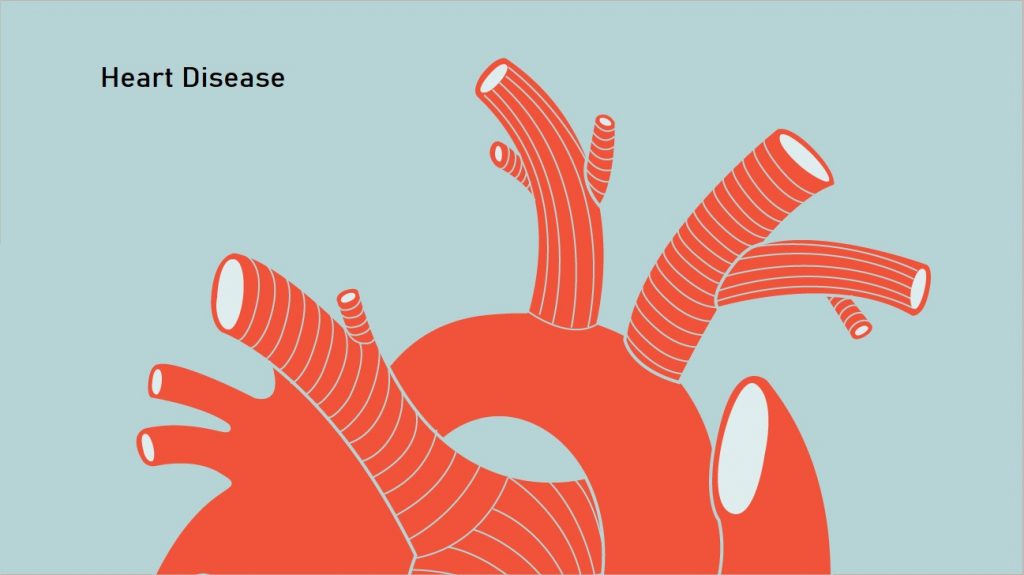Heart Disease. One of the most important organs of the human body is the heart. This organ is so important, and it should be taken care of. Something about the structure of the human body, where it is positioned, and how it functions shows how important it is.

One thing we should be very careful about is heart disease. This write-up will a reasonable amount of information on this topic, so read up till the very end of it.
Heart Disease
As the name implies, heart diseases are diseases that affect the heart. These diseases are very dangerous to the human body and affected people may even die because of their effects.
What Are The Four Types Of Heart Disease?
There are four common types of heart diseases, these are listed below.
Coronary Artery Disease (CAD), Also Called Coronary Heart Disease
This is the most common type of heart disease in the U.S. normally affects blood flow to the heart and can lead to a heart attack.
Arrhythmia
This type of heart disease is characterized by a change in the sequence of the heart’s electrical influences. This can result in abnormal heartbeats. Too fast – Tachycardia, too slow – Bradycardia or irregular – Palpitations.
Heart Valve Disease
This is a result of a damaged or corrupted valve in the heart.
Heart Failure
This is a situation where the heart does not perform its required function as it should. This normally results in fluid buildup. This does not necessarily mean that the heart has stopped functioning or beating.
Causes Of Heart Disease
Normally, heart diseases are caused when plaques develop in the arteries and other blood vessels leading to the heart and block essential nutrients from reaching the heart.
Plaques are waxy-like substances made up of cholesterol, minerals, and some fatty molecules.
Why do Plaques Accumulate
Plaques accumulate when the inner lining of an artery is damaged by high cholesterol, high blood pressure, and cigarette smoking.
The Risk of Heart Disease
The following factors below will determine whether you have a risk of developing heart disease in the future or not.
- Age
- Hereditary
- Obesity
- Insulin resistance or diabetes
- High Cholesterol and blood pressure
- Family history of heart disease
- Physical inactivity.
- Smoking
- Eating unhealthy diet
- depression
Early Signs Of Heart Disease
The following below are the early and common signs of heart disease.
- Chest pain, pressure in the chest, discomfort, and tightness in the chest.
- Loss or shortness of breath
- Some feelings of pain, numbness, or coldness in your legs or arms
- Pains in the neck, jaw, throat, upper abdomen, and back.
- Fluttering in the chest
- Racing heartbeat
- Lightheadedness
- Dizziness
- Swelling of the legs, abdomen, and areas around the eyes.
- Getting tired easily during exercises, etc
Late signs include popular heart attack, angina, stroke, or heart failure.
Ischemic Heart Disease (Ischaemic Heart Disease)
This is a type of disease caused by the narrowing of the heart arteries. It is another word for coronary heart disease.
Treatment of Heart Disease
The treatment of heart disease includes
- Lifestyle modifications will include;
- Eating a healthy diet low in sodium and fat
- Exercising regularly
- Limiting the intake of alcohol
- Quitting smoking
- Medications which will include;
- Using anticoagulants
- Angiotensin-converting enzyme
- Beta-blockers
- Calcium channel blockers
- Water pills
- Cholesterol-lowering medicines.
- Surgery
Remember that the preventive approach is always the best approach. Therefore, ensure you have a healthy lifestyle and go for checkups from time to time.



